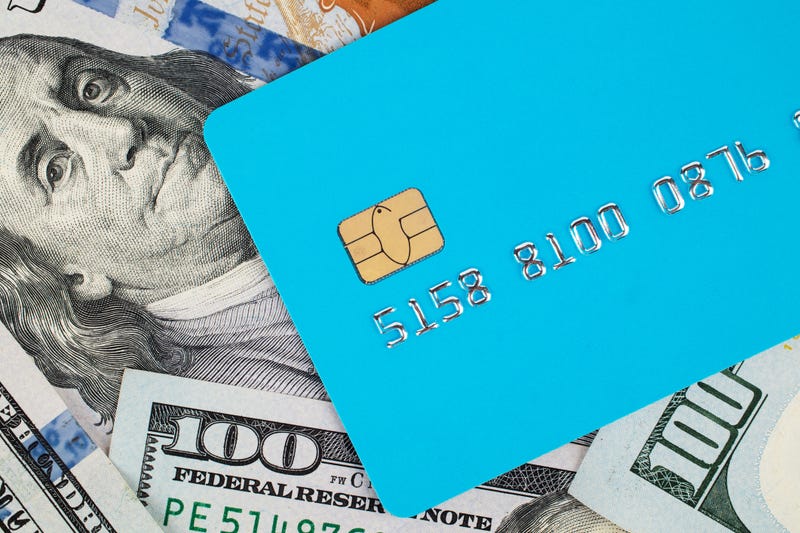
If you have started to feel beaten down by your credit card payments, you aren’t alone. Credit card balances in the U.S. have reached a record high, according to data released this week by the Federal Reserve Bank of New York’s Center for Microeconomic Data.
“Credit card balances increased by $50 billion to $1.13 trillion,” said the New York Fed. “Auto loan balances rose by $12 billion, continuing the upward trajectory seen since 2020, and now stand at $1.61 trillion.”
USA Today reported that the $1.13 trillion figure is a record high.
“Credit card delinquencies, the amount of time in which cardholders fall behind in making payments, also increased,” said the outlet. “The percentage of card delinquencies 90 days or more rose to 6.4% from 4% in the fourth quarter of 2022.”
Americans have been struggling with credit card debt since at least last summer, when Audacy reported that a majority of high-income American households with an annual income of $100,000 or more and credit card debt have carried that debt for more than a year. Last summer, Audacy also reported that four in 10 college students were struggling with credit card debt.
Per the Federal Reserve Bank of New York’s Center for Microeconomic Data report, total household debt in the U.S. increased by $212 billion (1.2%) in the fourth quarter of last year. Data used to compile the report from the New York Fed’s nationally representative Consumer Credit Panel.
“Credit card and auto loan transitions into delinquency are still rising above pre-pandemic levels,” said Wilbert van der Klaauw, economic research advisor at the New York Fed. “This signals increased financial stress, especially among younger and lower-income households.”
Even as many Americans struggle with credit card debt, 16 million people still plan to call in sick to their jobs on Monday after the Super Bowl. People who are struggling with debt and are interested in making a career change might want to check out Audacy’s coverage of the nation’s fastest growing cities.
